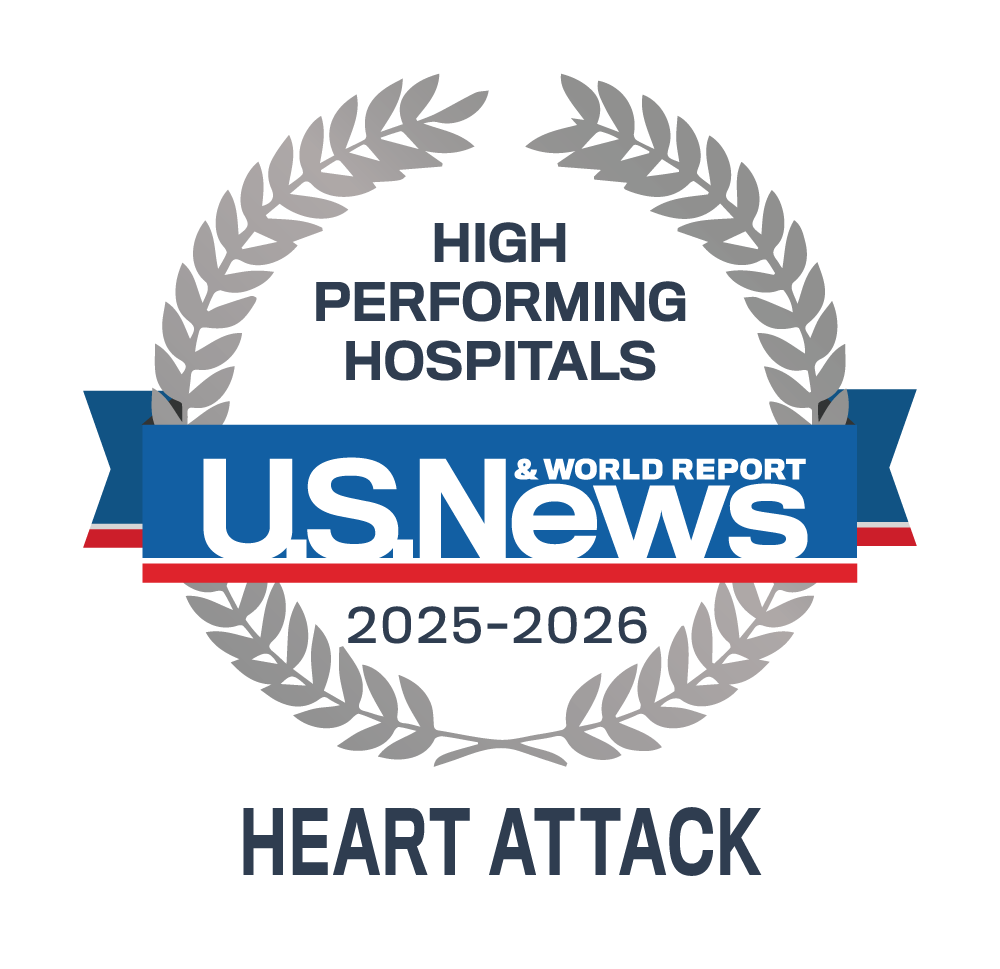Heart Attack
Signs of a Heart Attack
A heart attack, also known as an acute myocardial infarction (AMI), happens when the blood flow to the heart stops because a blood vessel is blocked. A heart attack must be treated immediately to avoid damaging the heart muscle.
Not all heart attacks come on suddenly. Signs of a heart attack can appear gradually over a few hours, days, or even weeks. The person suffering an attack needs help urgently. Call 911 immediately if you or someone near you experiences these heart attack symptoms:
- A squeezing sensation, fullness, burning, or pressure in the chest (angina) that could also occur in the shoulders, arms, back, belly, or jaw
- Shortness of breath or difficulty getting enough air
- Nausea
- Cold sweats
- Dizziness
Women, more than men, might also feel less obvious symptoms, such as fatigue and nausea, along with chest pain.
Heart Attack Causes
When blood flow to the heart is blocked, the heart does not receive all the oxygen it needs. When that happens, the cells of the heart muscle begin to die, ultimately resulting in a heart attack.
Blocked blood flow to the heart could happen for several reasons:
- Plaque buildup and blood clots, which gradually narrow the inside of the blood vessel until blood can’t get through. This is the outcome of heart disease and the most frequent cause of heart attacks
- Spasm of an artery can cause the artery to become narrower, slowing down the blood flow or blocking it altogether
- Spontaneous coronary artery dissection is a tear in the coronary artery that happens without warning. Blood is trapped inside and causes a blockage, so blood can’t reach the heart
Heart Attack Treatment & Diagnosis
At Bassett Healthcare Network, we quickly evaluate any damage to the heart and begin treatment. Our heart tests include:
- Blood tests, which can find proteins in the blood that were released by damaged heart muscles
- EKG (electrocardiogram), a recording that shows your heart rate, rhythm, and electrical activity
- Chest X-rays, that show our specialists if your heart is enlarged
- Echocardiogram, an ultrasound showing your heart’s functioning
- Coronary angiography, or coronary CT angiogram, is an X-ray using dye injections that can locate artery blockages
Our heart attack treatment approaches include prescribing medications to lower blood pressure for hypertension, dissolve blood clots, and achieve other heart-healthy aims, and performing heart bypass surgery, which involves transplanting part of a healthy artery from elsewhere to replace the blocked passage.
Bassett Medical Center Named Among Best Hospitals for Heart Attack Treatment
U.S. News & World Report has recognized Bassett Medical Center as a high performing hospital in the treatment of heart attacks. Click here to learn more.

Call 911 Immediately for Heart Attack Treatment
If you’re having heart attack symptoms, call 911. The EMTs can take you to any Bassett Healthcare Network emergency department for immediate heart care treatment.
Bassett Healthcare Network treats heart attack symptoms in Central New York at multiple locations, including Herkimer, Oneonta, Little Falls, Cobleskill, Cooperstown, Delhi, and beyond.






